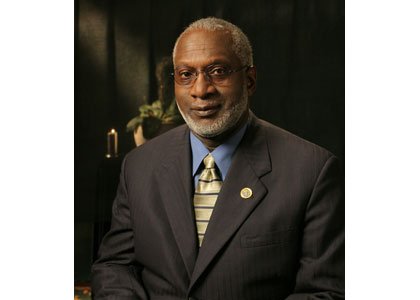His first report as the U.S. Surgeon General was released 15 years ago when it was revealed that mental health conditions affected far more individuals than anyone had ever imagined.
Now, as director of the Morehouse School of Medicine’s Satcher Health Leadership Institute, Dr. David Satcher released a new public opinion research study on Tuesday, February 3, 2015, that revealed 71 percent of Americans are seeking significant or radical changes in the way medical officials and experts treat mental health and addiction.
“More needs to be done to innovate and collaborate,” said Satcher, who joined U.S. Rep. Patrick J. Kennedy in announcing the formation of the Kennedy Center for Mental Health Policy and Research at an event in Washington. The center will be housed within the Satcher Health Leadership Institute at Morehouse in Atlanta.
“This is something that first began with President John F. Kennedy when he spoke about removing the barriers to mental health treatment and when he signed in 1963 the Mental Health Act,” Satcher said. “Two years ago, Patrick Kennedy and I initiated a forum and that followed what Patrick, his dad and I had formed which was a very important partnership to thrust mental health into the spotlight.”
The Satcher-Kennedy partnership and the center will focus on highlighting, expanding and promoting best practices in mental health and addiction treatment and both men said they are hoping to make significant progress toward solving a range of challenges in mental health and substance use disorders through work there.
Dr. Satcher says Morehouse was chosen because it’s where the partnership began.
In a statement, Kennedy said regardless of where the center is located, significant change is needed when it comes to mental health and substance treatment and awareness.
“We are optimistic that by working together, we can make take the necessary actions to ensure that we are living up to the letter, and spirit, of the 2008 parity law, which guarantees equality for people seeking services,” Kennedy said.
The public opinion research, commissioned by the new center and conducted by Public Opinion Strategies, revealed that 74 percent of Americans believe physical health is treated with more importance in the healthcare system. Addressing this issue is a goal the partnership outlined as part of the announcement.
“Stigma has certainly been an obstacle, and stigma has also affected policy,” Satcher said. “But, there was once a stigma attached to cancer with the belief that if you get it you are going to die. That’s changed and that’s what we want to do with the stigma that surrounds mental health and substance use. Have we made progress? The jury is still out. But what we do know is that more needs to be done to innovate and collaborate, and the Kennedy Center for Mental Health Policy and Research will help lead the way.”
Satcher says the significance of the new poll couldn’t be overstated.
“I don’t think that there’s been a survey that has documented the concerns of the American people like this and it’s time to bridge the gap between what we do and what we know,” he said.
The poll also revealed that there is broad, bipartisan support for action on mental health issues and a majority of those surveyed believe that quality of and access to mental health care needs to be top priorities, with the two most important goals for mental health in the United States being improving quality of care for people with mental health conditions and making sure people with mental health conditions have access to the care they need regardless of where they live, their ethnicity, or their background.
A need for better research into the causes, treatment and prevention of mental health conditions, such as depression, anxiety, alcohol and drug abuse was also revealed in the poll.
“With so many Americans ready for a change in our approach to mental health and addictions, the center will provide needed guidance and a range of resources,” William Emmet, executive director of The Kennedy Forum, said in a news release. “These types of partnerships are critical in raising key issues, and fostering the collaboration we need to solve them.”
